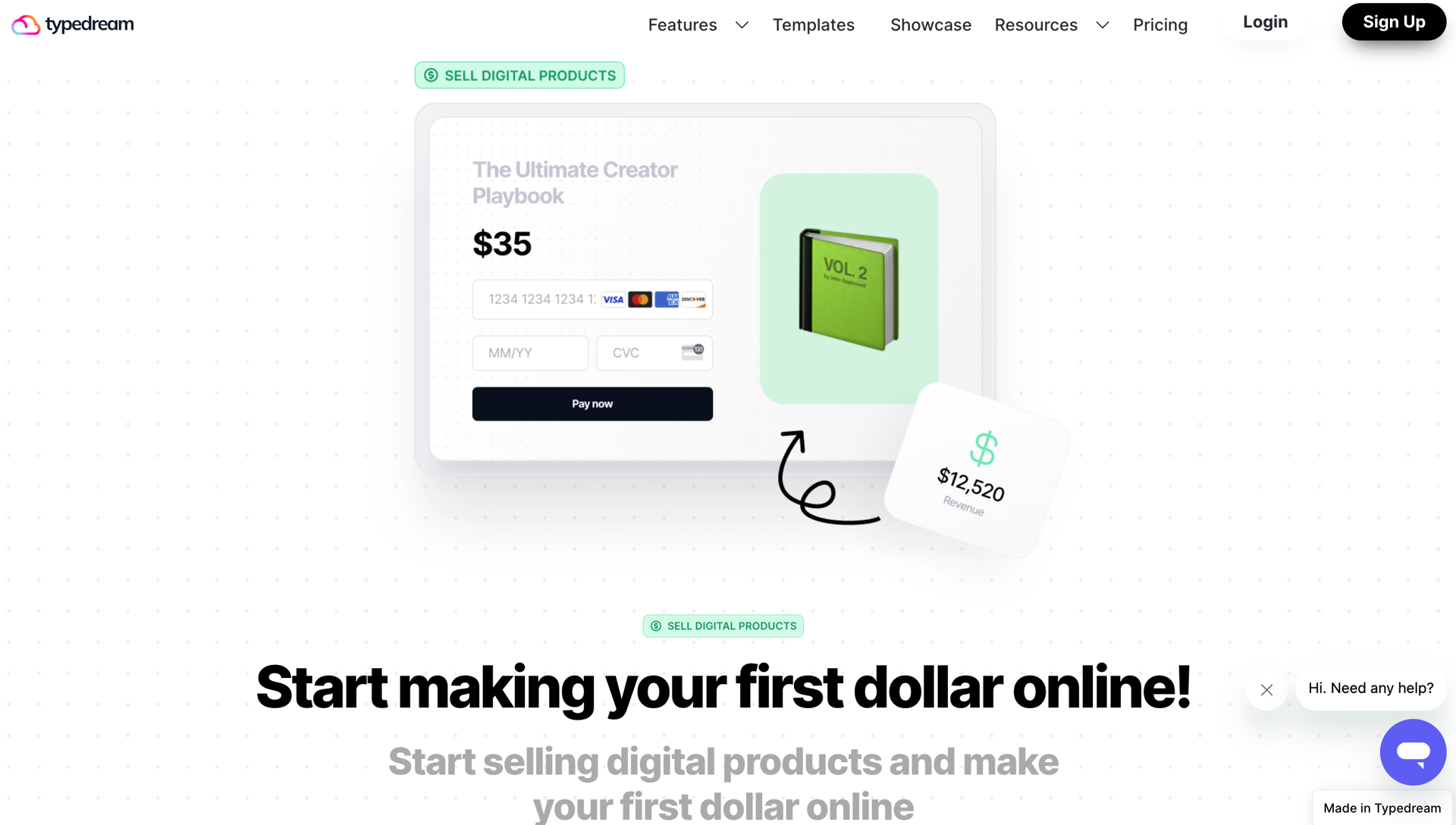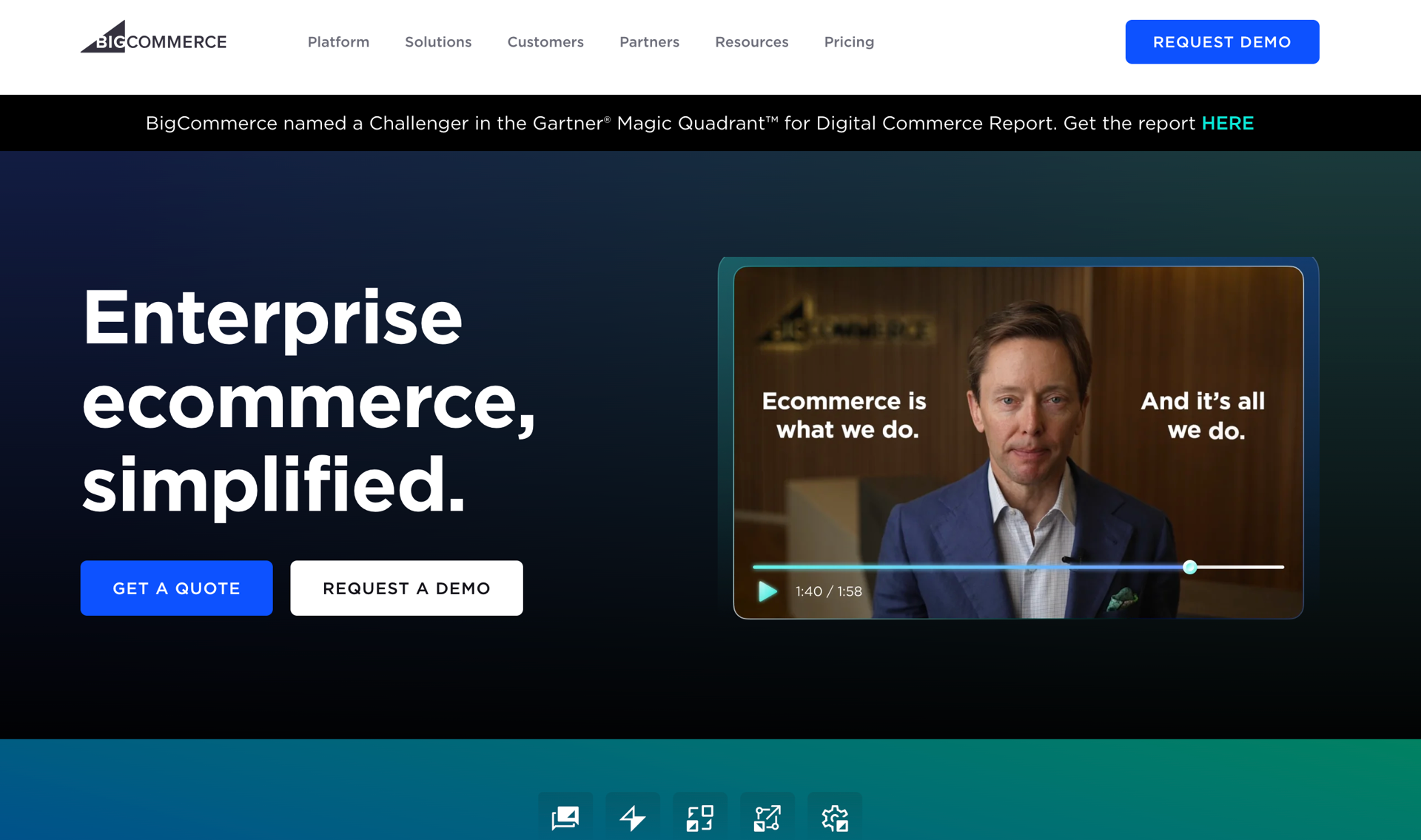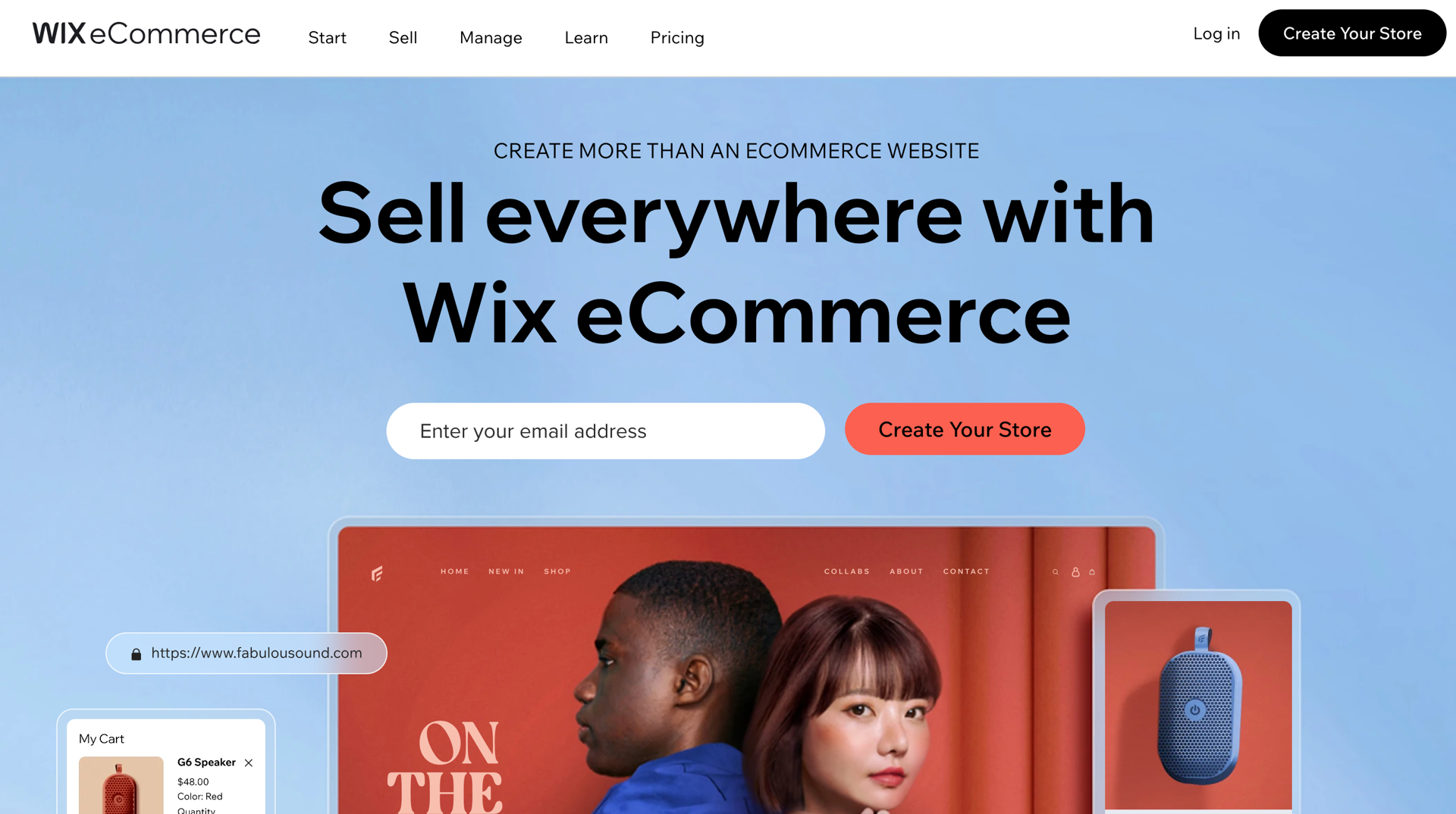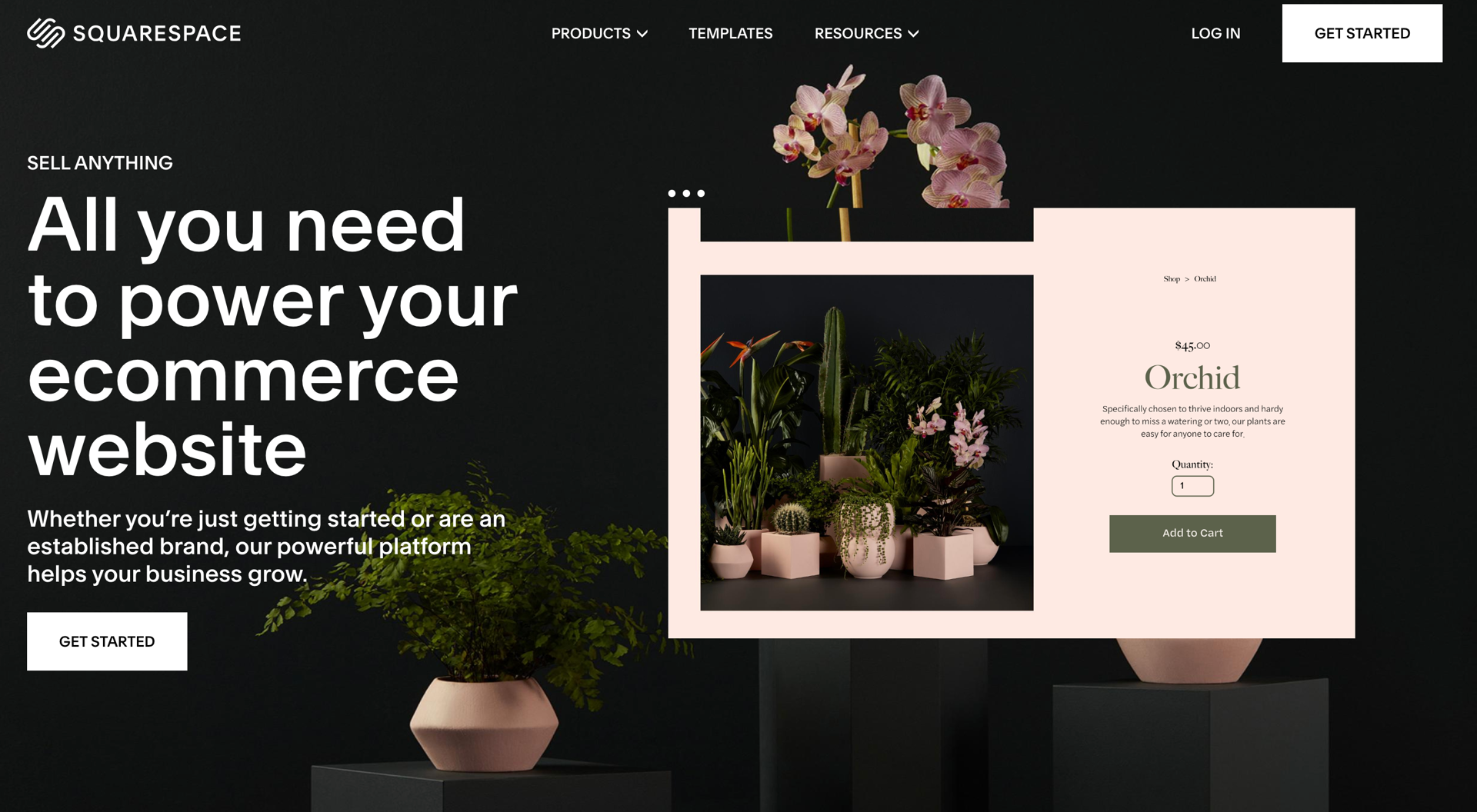Top 5 Shopify Alternatives to Sell Digital Products
For sometime, Shopify has been the go to site to sell products online. It allows you to sell without having to spend too much time building your own site or selling through marketplace like etsy or Amazon. But the glory days of shopify might be coming to an end.
Putri Karunia
Feb 28, 2024 – 4 min read
We have a lot more option than we had before. Choosing the right e-commerce platform for selling digital products is crucial as it can contribute to our customer's journey and most importantly our margins. While Shopify stands out for its user-friendly interface and robust features, it may not always align with the specific needs of every digital product seller. I'm going to explore alternatives that offer different advantages, particularly for those seeking platform that's more focused on digital product.
Criteria
How I Rank Them
Just like my earlier quest on finding The Best AI Web Builder, for my quest for the best Shopify alternatives I'll try a bunch of product and pick my top 5 from these criterias. They are: user-friendliness, customization, and pricing.
- User-Friendliness: We are sellers, not developers. The platform must be intuitive from the get-go. I'm seeking an experience that is easy to start and can be published asap. Bonus point if it feels familiar, cause most of us used Shopify before.
- Customization: My store front should show my product's colors. Not just literal colors but the theming and feeling of the site should reflect what I sell. The ability to move beyond cookie-cutter templates to a more personalized, customizable web presence is non-negotiable.
- Pricing: Value for money is key. While I'm willing to invest in quality, the platform must balance affordability with robust features. If I'm okay with high fes I could just go to etsy and Amazon, clearly a sensible cut to the platform will make it or break it for this platforms.
1. Typedream
Typedream is the newest kid on the block, but it's my favorite. It provides most of the essential features without the hassle of unnecessary ones. Its AI Web Builder also allows you to create a website in just 5 minutes. The AI Web Builder will manage your page structure, theming, and copywriting.
User-Friendliness: Typedream impresses with its sleek, no-code website builder. It's designed for ease of use, allowing anyone to quickly set up a digital storefront without prior web design experience.
Customization: While Typedream may not offer the depth of customization of some other platforms, it provides a range of stylish, modern templates that are perfect for creators who want a beautiful site up and running quickly.
Pricing: Typedream offers competitive pricing, making it an attractive option for startups and individual creators. With its focus on simplicity, the cost reflects the streamlined feature set designed to get you selling without fuss. With three plans for different business sizes and needs, Typedream offers clear competitive pricing:
- A free plan to get you up and running without any cost
- A Startup and Business plan to launch and grow your website
It's perfect for those who are starting a new business or creating a personal site whilst the premium plans can cater to designers and SMEs.
2. BigCommerce
BigCommerce is like the Swiss Army knife of e-commerce platforms – it's robust and built to scale. It's ideal for businesses medium to bigger-sized business, it offers an interface packed with advanced features and customization options, letting you tailor your digital storefront according to your companies' goals. With its wide range of integrations and tiered pricing plans, it strikes a fine balance between functionality and affordability, making it a heavyweight contender in the e-commerce arena.
User-Friendliness: BigCommerce is designed for scale, catering to businesses of all sizes. Its user interface is intuitive, although newcomers might find it slightly more complex due to its extensive features.
Customization: This platform shines when it comes to customization. BigCommerce offers robust options for tailoring your digital storefront, supporting a wide range of themes and deep customization capabilities through HTML and CSS.
Pricing: BigCommerce's pricing is tiered, reflecting its appeal to growing businesses. While it might start on the pricier side, the wealth of features and scalability justify the investment.
3. WooCommerce
WooCommerce is like that DIY project you were initially scared to start but ended up loving. Yes, you need a WordPress to kick things off, which is an extra step, but it offers quite a big customization options. It’s like having an infinite box of crayons to draw your digital storefront, be sure not to ruin your wordpress site though. The best part? It’s essentially free to start.
User-Friendliness: WooCommerce, a popular plugin for WordPress, marries simplicity with power. It requires a bit more setup since you'll need a WordPress site, but its integration with the familiar WordPress environment makes it a comfortable choice for many.
Customization: Customization is where WooCommerce excels. Being open-source, it offers unparalleled flexibility, allowing for extensive modifications and the addition of custom plugins.
Pricing: WooCommerce itself is free, but costs can accumulate through the need for paid WordPress hosting, themes, and plugins. It's a highly cost-effective solution if you're willing to put in the time to manage it.
4. Wix
Wix is that friendly neighbor who's always there to help you move furniture or set up a barbecue. It’s super user-friendly, just a good old drag and drop editor, making website creation as easy as pie. Perfect for those who’d rather not dive into the deep end of web design. However though it offers design customization, you can't really have a hyper customized functions like you would on other editor with the same price.
User-Friendliness: Wix is renowned for its drag-and-drop website builder, making it incredibly user-friendly for beginners. It offers an easy way to design and launch your digital product store with minimal learning curve.
Customization: While Wix might not offer the depth of customization as some other platforms, it still provides a wide range of templates and design options that can be tweaked to match your brand.
Pricing: Wix operates on a subscription model, with various tiers to fit different needs. Its pricing is straightforward, with plans including hosting, making it an all-in-one solution for smaller businesses and individuals.
5. Squarespace
User-Friendliness: Squarespace is another user-friendly option, offering beautiful templates and a simple interface. It's particularly favored by creatives for its design-centric approach to website building.
Customization: Squarespace offers robust design options and templates that are easily adjustable to fit your brand's aesthetics. However, the customization capabilities might not be as extensive as platforms like WooCommerce.
Pricing: Squarespace provides several pricing plans, which are clear and easy to understand. The cost includes hosting, and while it may be slightly higher than some alternatives, the value is evident in the quality of the designs and ease of use.
Conclusion
Choosing the right e-commerce platform for selling digital products depends largely on your specific needs. If you prioritize user-friendliness and simplicity, Typedream and Wix are excellent choices. For those needing deeper customization and scalability, BigCommerce and WooCommerce offer robust solutions. Meanwhile, Squarespace stands out for creatives seeking beautiful design with minimal fuss.
Consider your long-term business goals, technical comfort level, and budget when making your decision. Each of these Shopify alternatives has its strengths, making them worthy contenders for powering your digital product sales.
We're a remote software company, building online tools for creators, builders, and side hustlers. We quit our 9-5 to pursue our dreams, and we want to help others do the same.
Backed by
Made in Typedream





